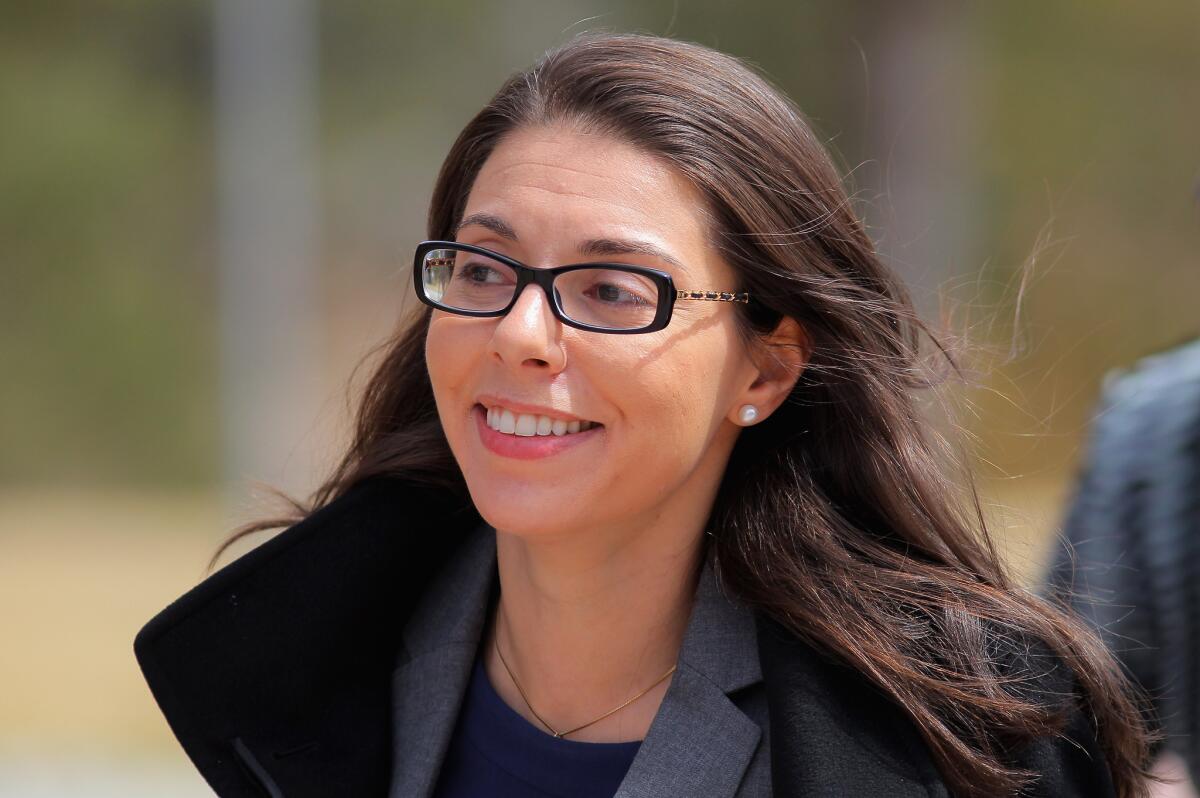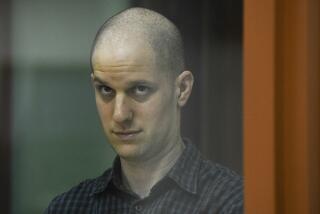James Holmes case: Can a reporter be forced to reveal her source?

CENTENNIAL, Colo. — High-stakes legal issues have become a hallmark of the James E. Holmes case, with questions surrounding capital punishment, insanity, due process and even doctor-patient privilege likely to swirl for months — if not years — to come.
Yet one constitutional issue that has been quietly brewing almost from the beginning has received much less attention:
Can a reporter, relying on confidential information, be forced to reveal her source?
On Wednesday, that 1st Amendment question will be front and center as the defense for Holmes, accused of the Aurora movie massacre that killed 12 and injured 70, continues its quest to make Jana Winter, a FoxNews.com investigative reporter, divulge who told her about the contents of a notebook the suspect sent to a psychiatrist before the July 20 rampage.
In December, the defense called 14 law enforcement witnesses to determine who had leaked the information to Winter despite a gag order in the case. When all of them denied being the source, the defense subpoenaed Winter, based in New York, to come to Colorado to testify.
Winter, a journalist for the last six years with a specialty in gathering information about mass shootings, wrote a story on July 25 that said police had confiscated Holmes’ notebook, which was “full of details about how he was going to kill people.”
Winter cited two unnamed law enforcement officers as her sources. She also reported that the anonymous sources said the notebook contained “drawings of what he was going to do in it — drawings and illustrations of the massacre.”
Dori Ann Hanswirth, a New York lawyer with the Hogan Lovells law firm who is representing Winter, said in an interview Tuesday that despite mounting pressure, she will continue to fight to keep her client off the stand.
“This matters greatly,” Hanswirth said, not only for Winter and other journalists who rely on anonymous sources to do their job but also for the country, which counts on a vigorous press to uncover stories that others might not want told.
“This could be something that could stop journalism in its tracks,” Hanswirth told the Los Angeles Times. She added that, for journalists, keeping one’s word to a protect a confidential source is “a fundamental bedrock of journalistic ethics.”
Last week, District Judge Carlos Samour Jr., newly assigned to the case, said Winter could face up to six months in jail if he decides she must testify and she then refuses to divulge her sources.
Just the possibility of jail time for a reporter has sent shock waves through the news industry.
On Monday and Tuesday, affidavits in support of Winter were filed in the Holmes case by Bruce Brown, executive director of the Reporters Committee for Freedom of the Press; Justin Sasso, president of the Colorado Broadcasters Assn.; and Samantha Johnston, executive director of the Colorado Press Assn.
“The mere fact that Ms. Winter has been subpoenaed in this case has already chilled newsgathering in connection with the case,” Johnston wrote.
Brown wrote that reporters are protected by the Colorado Press Shield, which was enacted in 1990 and prevents them from being forced to divulge confidential sources.
Winter said in a court affidavit that she forged a reputation by building trust with sources and that if she “burns” them, her future as a journalist will be “irreparably tarnished.”
Since her name surfaced in connection with the case, she said, she has been targeted by threatening Internet postings, one of which said “may you be the first killed when the next civil war comes.” She said pictures of her family have also been posted.
“She’s understandably distressed,” Hanswirth said Tuesday.
Last week, defense attorney Rebekka Higgs, arguing in court to force Winter to testify, said the rights of a defendant to get a fair trial trumps the rights of reporters to protect sources. “The press is not free to publish anything and everything,” she said, adding, “it is not an absolute privilege.”
The prosecution in the case has not been involved but did offer the possibility in court that Winter’s sources may not have given her accurate information or exaggerated what they knew.
Hanswirth said Tuesday that her client stands by the accuracy of the information. She also called the fight a distraction from the larger legal issues in the case.
The judge has said he is not convinced the defense has exhausted all means to learn Winter’s sources without calling her to testify. He will hear more testimony Wednesday from Aurora police before making a ruling at a later date.
Holmes faces the death penalty for 166 counts of first-degree murder, attempted murder and weapons charges. Trial is not expected to begin until February at the earliest.
ALSO:
N.J. boy, 6, shot in head after 4-year-old finds father’s rifle
A first: Texting while flying contributes to fatal chopper crash
Deputy’s wife killed when gun goes off in hands of 4-year-old
More to Read
Sign up for Essential California
The most important California stories and recommendations in your inbox every morning.
You may occasionally receive promotional content from the Los Angeles Times.










